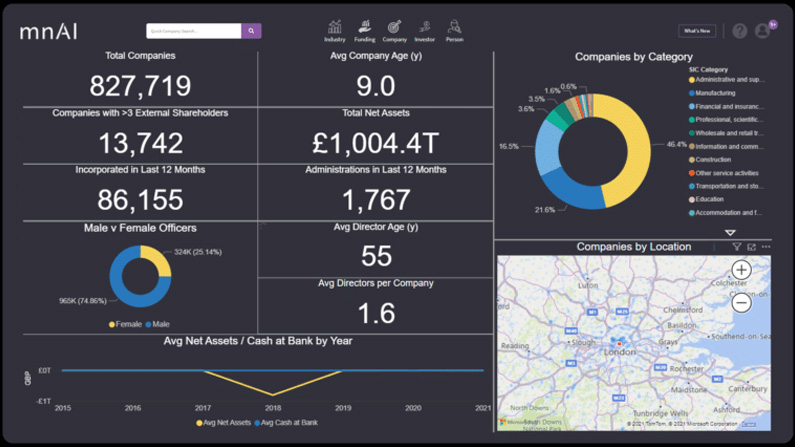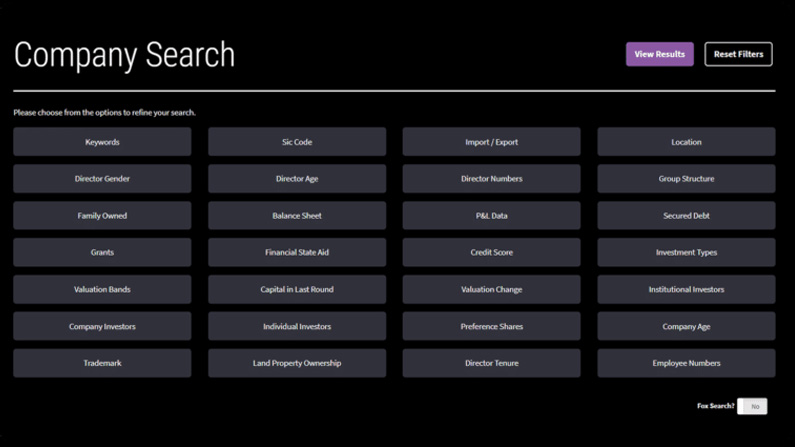How Local Authorities can use data to achieve their objectives
Friday 15th October 2021

In today’s technology-driven world, businesses and organisations, large and small, are rapidly learning how data can deliver insights into their customers’ preferences and behaviours, and drive strategic business decisions. Sources of data abound, and the challenge is often not how to gather it, but how to analyse and use it.
The usefulness of data isn’t limited to commercial, entrepreneurial companies, though. Local authorities are increasingly recognising the value of data to enable them to streamline their processes, drive better engagement with their communities and deliver services more efficiently.
Why data is useful for local authorities?
Data can provide a number of benefits to local authorities.
The Covid-19 pandemic has created unprecedented challenges for local authorities and other government departments, as well as for businesses and individuals. Since the onset of the Covid-19 pandemic, many councils have reported that better use of their local authority data has been an important element in helping them to respond effectively to the challenges it presented.
According to a report by the Centre for Data Ethics and Innovation (CDEI), which surveyed 12 local authorities and organisations, local authorities have found that collecting and using data more effectively has enabled them to:
Identify those most clinically and economically vulnerable to the effects of COVID-19
Predict demand and pressures on local services;
Inform direct public health responses to COVID-19 outbreaks, including local-level;
Collaborate on NHS Test and Trace.
In addition to putting in place measures to support local services and protect individuals, since the first lockdown began in March 2020, local authorities have been forced to take action to support local businesses.
Better use of data can help local authorities to build strategies and actions plans based on real insight into their business community, enabling them to target companies most in need of their support.
With data sets that allow them to identify businesses segmented by district, borough and sector, local authorities can be highly specific and targeted with their support.
How local authorities, through Local Enterprise Partnerships, can use data to support business
Effective acquisition and analysis allows local authorities to prioritise work with the sectors and businesses that are most in need of their support.
It allows them to set their performance targets based on data, to ensure they are publicising and making their services are most accessible to those in greatest need – whether from a business or social perspective.
Local Enterprise Partnerships in the UK (LEPs) can build their work programmes based on the insight gleaned from detailed local business data, accurately identifying businesses with growth potential and proactively engaging with them with information on grants, support, mentoring and events available through their Growth Hubs.
Data can also provide much greater insight into gender leadership diversity, allowing local authorities to develop a strategy for future engagement.
How data promotes support for female entrepreneurship
The rise in women starting businesses during the Covid-19 pandemic has been widely reported in the UK media (see The Guardian for just one example), yet it’s also a fact that female entrepreneurs are far less likely to achieve investment from angels or other funders than their male counterparts – particularly in companies with all-female boards.
The ability to segment businesses by district, borough and sector allows local authorities to compare the proportion of women-led businesses they have supported compared with the proportion of women-led business across all registered businesses, allowing them to check that they are meeting their targets for supporting diversity within their regions, and adjust their approach if they are not.
Coast to Capital piloted the use of mnAI for engaging with women-led businesses in their regions
Julie Kapsalis, the chair of Coast to Capital said:
“I want to make a step change in the way we address equality and diversity. The Rose Review tells us that female businesses could generate an extra £250 billion of value. I passionately believe we need to create a true level playing field for women to access our networks, support and finance. mnAI data helps Coast to Capital identify businesses, and gives rapid insights into local trends in far greater detail than is possible by conventional means.”
With the right data sets, local councils and LEPs can:
- Actively identify and support female founders;
- Perform instant analysis to spot and monitor trends, activity and engagement within female entrepreneurs;
- Highlight hotspots for female-founded companies;
- Identify trends and gender breakdown within their region;
- Identify trends and hotspots in certain areas;
- Identify the number of female-led/male-led businesses it certain areas;
- Visualise growth within their regions.

Access to this data helps LEPs to connect with female founders and start-ups, increasing their engagement with them and targeting funding where it is most needed. In the past local councils with business grants under schemes designed to support female founders have struggled to identify targets for their funding, but access to accurate data allows them to find and target the female business owners who fit the criteria.
In addition to targeting certain groups, local authorities can also use data to ensure that they are consistently identifying, approaching, and engaging with the businesses who need their support, and providing equal support to all.
Local Enterprise Partnerships and Growth Hubs can analyse data by geography and sector using it as a key element of the research, targeting, and support for businesses they engage with, and allowing them to review the businesses that they engage with to ensure that their CRM data reflects the engagement with limited companies.
Using data to target businesses in need of support
In addition to targeting certain groups, local authorities can also use data to ensure that they are consistently identifying, approaching, and engaging with the businesses who need their support, and providing equal support to all.
Local Enterprise Partnerships and Growth Hubs can analyse data by geography and sector using it as a key element of the research, targeting, and support for businesses they engage with, and allowing them to review the businesses that they engage with to ensure that their CRM data reflects the engagement with limited companies
How mnAI can help local authorities to use data
Our platform can help local authorities gain a detailed picture of business in their region, and identify and target businesses that qualify for business help and support.
Whilst there are other sources of data available, our search capabilities and speed make it more useful to local authorities and LEPs than other, more well-known sources of company data (like Companies House, for example). It’s currently the only platform that can identify the gender of the founders, directors and shareholders of over 8 million UK companies, for example, and its billions of data points mean that searches can be detailed and focussed on specific sectors, business types and areas.
With over 350 search variables, users can easily identify companies that meet their exact criteria. From anticipated financial growth, specific director gender or age, location or sector, mnAI helps local governments to develop a deeper understanding of their local business communities, and gain strategic insights into the priority sectors and sub-sectors in each borough or LEP.

It’s also fast. Not only does mnAI eliminate the need for many hours of manual research, it also delivers search results in minutes, all presented in a simple to read dashboard. Our unique visualisation technology reveals your area’s business landscape in detail – and with millions of data points added every week, you can be confident the picture you are seeing is in real time: up-to-date and accurate.
mnAI can provide the public sector with meaningful insight into their area’s business development, across all LEPs and local authorities, allowing you to better target the business support and services which will impact your area.
Find out more about how we can help local authorities
Category: Articles